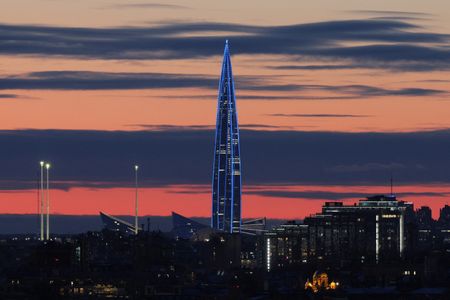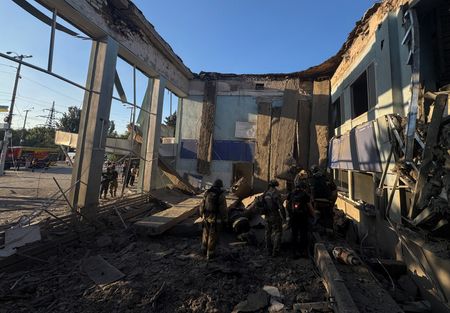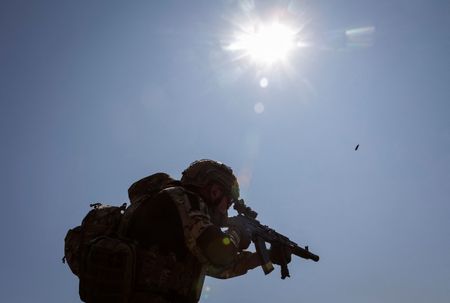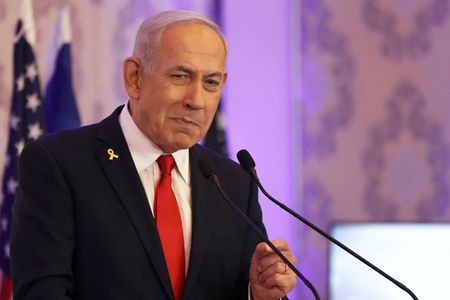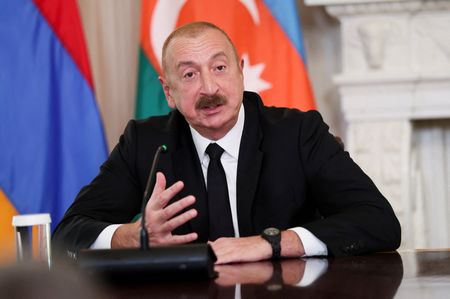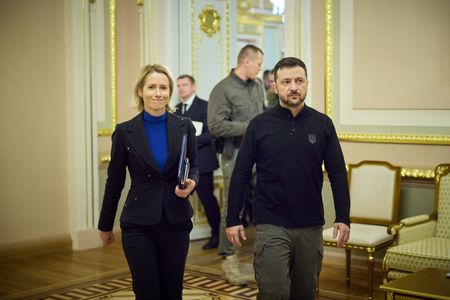(Reuters) – The United States reached separate deals on Tuesday with Ukraine and Russia to halt attacks at sea and against energy targets, with Washington agreeing to push to lift some sanctions against Moscow.
The potential easing of U.S. and EU sanctions in the event of a peace deal between Russia and Ukraine has raised the question over what happens to disputed assets that were impacted by international sanctions – both Russian assets in Europe and assets owned by international companies in Russia.
Oil and gas exports are a key revenue source for Moscow. International sanctions were tightened significantly after Russia invaded Ukraine in 2022, with Washington announcing its harshest round of sanctions on January 10.
Western companies have either sold or ceded energy assets to Russian firms and European governments have taken over units of Russian energy firms, while Moscow has taken retaliatory measures against Western companies with units in Russia.
Here is a summary of some of the energy assets and companies affected:
SAKHALIN-1 OIL AND GAS PROJECT
Exxon Mobil Corp held a 30% operator stake in Sakhalin-1, which is a project to develop oil and gas off the coast of Sakhalin Island. Russian company Rosneft, India’s ONGC Videsh and Japan’s SODECO were partners. In 2022, Exxon took a $4.6 billion write-down for exiting the development Sakhalin-1.
In December 2024, President Vladimir Putin signed a decree extending the sale period for the unclaimed Exxon stake in Sakhalin-1 oil and gas project until January 1, 2026.
SAKHALIN-2 OIL AND GAS AND LNG PROJECT
Kremlin-controlled energy giant Gazprom in 2024 acquired a 27.5% stake, formerly owned by Shell, in Russian liquefied natural gas (LNG) producer Sakhalin Energy for around $1 billion, according to a government order.
The Russian prosecutor filed a claim against Shell for alleged unpaid gas deliveries in 2022, asking Shell to pay Gazprom 1.5 billion euros and a new court hearing is scheduled for next month.
Gazprom now owns almost 77.5% of the Sakhalin 2 operational company, Sakhalin Energy, located in the southern tip of the Pacific island of Sakhalin. Other shareholders are Japanese companies Mitsui 8031.T (12.5%) and Mitsubishi (10%).
SALYM OIL PROJECT
Shell agreed to cede its half of the Salym project to Russian partner Gazprom Neft in 2023. Shell had already written down the value of its stake with an impairment of $233 million in 2022.
Shell also sold its Russian retail and lubricants business to Lukoil in 2022.
WESTERN COMPANIES IN RUSSIA
UNIPER
The Kremlin took action in April 2023 against Unipro, the Russian division of German utility Uniper, which has five power plants in Russia, by placing it under Moscow’s control.
FORTUM
The same action was taken against the Russian division of Finland’s Fortum, which had seven thermal power plants in the Ural region and Western Siberia, and a portfolio of wind and solar plants in Russia together with local venture partners.
The book value of those assets was 1.7 billion euros ($1.87 billion) at the end of 2022.
BP
BP still formally controls a 19.75% stake in Rosneft. In October 2022 the head of Rosneft Igor Sechin said BP remained a shadow shareholder in Rosneft despite statements from the international major about leaving Russia. In November 2024, BP CEO Murray Auchinclos said the company continued to try to sell its stake in Rosneft.
In 2020-2021, global commodity traders Trafigura, Vitol and Mercantile joined Vostok oil, Rosneft’s flagship project that is expected to produce up to 2 million barrels per day (bpd) by 2030, but left it after February 2022.
WINTERSHALL DEA
Under Russian decrees from December 2023, Wintershall Dea’s stakes in the Yuzhno-Russkoye oil and gas condensate field and in the Achimov gas projects are to revert to newly-created Russian companies and offered for sale to Gazovyye Tekhnologii, formalising the loss of control that BASF and Wintershall Dea had flagged since January 2023.
OMV
Putin also ordered the transfer of OMV stakes in Russian ventures in December 2023.
OMV paid 1.75 billion euros for a stake in the Yuzhno- Russkoye oil field, one of Russia’s largest, in 2017, saying at the time that it could add 100,000 barrels of oil equivalent (boe) per day to its production.
RUSSIAN COMPANIES IN THE WEST
GAZPROM
In 2022, Germany nationalised Gazprom Germania, a subsidiary of Russia’s gas giant Gazprom, after Gazprom quit it without explanation.
The company was renamed Sefe (Securing Energy for Europe), and the German government injected 6.3 billion euros ($6.92 billion) to recapitalise it with European Commission approval.
ROSNEFT
Germany, via its energy regulator, put two German divisions of Russia’s Rosneft – Rosneft Deutschland GmbH and RN Refining & Marketing GmbH – under so-called trusteeship in 2022.
As part of the arrangement, Germany took control of Rosneft’s stakes in three oil refineries: a 54.17% stake in PCK Schwedt, a 24% stake in MiRO and a 28.57% stake in Bayernoil.
Legally, Rosneft remains the owner but has no way to exercise control over these assets as long as the trusteeship remains in place.
LUKOIL
Lukoil, Russia’s second-largest oil producer, plans to raise around $2 billion from the sale of its Burgas oil refinery in Bulgaria.
(Reporting by Reuters; editing by Nina Chestney and Gareth Jones)

